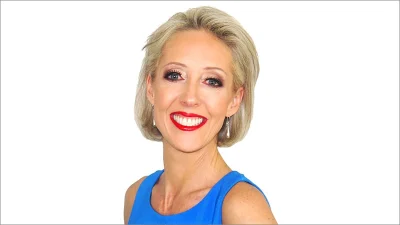Why business leaders need to talk about menopause



Ahead of the Women in Finance Summit this week, business trainer and entrepreneur Kim Payne said when she turned 49, she fell off what she calls the “confidence cliff”.
“I suddenly became disinterested in my work,” she told Super Review.
“I wasn’t productive. I was always distracted, to the point where I wasn’t responding to my clients’ emails even though I loved them. I felt like I was having a midlife crisis and losing everything.”
This prompted her to visit her doctor, who diagnosed her with perimenopause (the stage of life leading up to a woman’s final menstrual period), which, funnily enough, Payne had never heard about.
“I didn’t even know what perimenopause was,” she said.
“Moreover, I was under the illusion that menopause just meant hot flashes and the end of our monthly cycle, only to learn that it was so much more.”
Payne was treated with hormone replacement therapy, which regulated her hormones and saw her return to her original self, she said.
“It was so profound when I started getting me back again.”
Her experience prompted her to conduct research over the last 12 months into how women define success, and the barriers they face in achieving this. She said numerous women have shared similar stories of unknowingly suffering from the symptoms of perimenopause and making key business decisions because of it.
“I had one successful female real estate agent who was going through perimenopause who thought that she was losing her touch. She quit her job as a result,” Payne said.
“She found out a year or two later that she had perimenopause, which could be treated with medication. But because she’d already left her job, she had to start again years later.
“Women are making business decisions based off these symptoms, which can be crucifying but they could change this if they got the right medical attention.”
To tackle this, Payne urged the financial services industry to have open conversations about perimenopause and menopause to gain a deeper understanding of it, create support networks, find solutions, and address the symptoms to continue thriving in their businesses.
“Talking to other women who’d been through something similar and had done something about it normalised it for me,” she said.
“When you normalise it, it’s easier to find resources to help you deal with, address it, and move past it.”
When Payne regained her confidence after receiving treatment, she said she learnt how to better leverage her relationships and ask for help – something she hesitated to do before.
“I don’t like to ask for help for use and abuse,” she said.
“I learnt to ask for help with the intention of offering something of value in return.”
As such, she urged other female business owners and entrepreneurs to leverage their relationships and be confident enough to reach out for help.
She also encouraged them to invest in improving themselves as a human being by expanding their knowledge through reading, listening to podcasts, completing online courses, or appointing a business coach.
“It’s important to have self-awareness and understand the invisible barriers you face and find ways to overcome them to thrive in your business. Your personal and business growth are intertwined,” Payne said.
“Once I started investing in my personal growth and development, and exploring what invisible barriers and self-limiting beliefs were holding me back (like low confidence or imposter syndrome), I was able to project my business to where it is today.”
When asked what key message she would like attendees at the summit to walk away with, Payne said she would like women to treat themselves like they would treat someone they love.
She concluded: “We are always there for everyone else, including our employer and employees, our kids, parents, partners, or friends. Treat yourself with the same love and kindness that you treat others and you’ll do so much more.”
Kim Payne will provide insights this week at the Women in Finance Summit 2023 about how female business leaders can thrive while navigating menopause and other challenges.
The summit will be held on Friday, 10 November at The Star, Sydney.
For more information, including agenda and speakers, click here.
Recommended for you
The $16 billion fund has teamed up with a retirement income product specialist to give its members more confidence to spend in retirement.
The super fund-owned institutional investment manager has appointed an internal candidate as its next head of operations.
The $91 billion fund has doubled down on its data security, alongside enhancing its investment strategy, with two key appointments.
The Albanese government has appointed Jim Craig as a member of the Future Fund Board of Guardians for a five‑year term.












